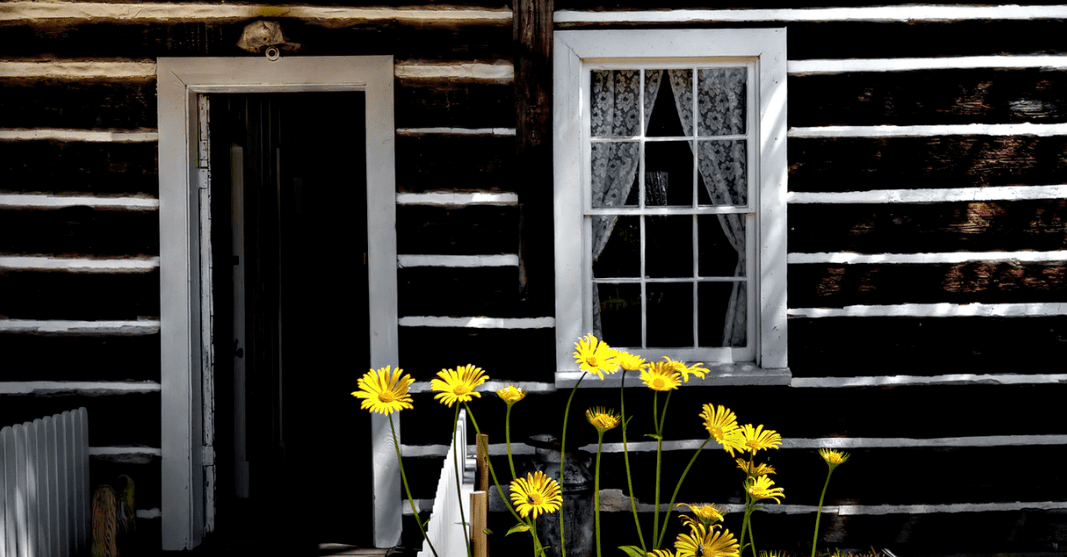Want to get in the mobile home business? The good news is that we are currently in a golden window of opportunity. It’s also a big and mature enough industry that there isn’t just one way you can make money with mobile homes. In fact, there are almost as many options as when it comes to real estate, maybe even more.

The following are some of the best and most lucrative ways of making money with mobile homes that many people are already practicing. Each has their pros and cons, will suit different people to different degrees, and their own opportunities and pitfalls to look out for.
Mobile home investment tips
We’re used to people being surprised when you first tell them about mobile home investing. What could these homes that are still often thought of as “temporary” has to do with long-term moneymaking strategies? Quite a lot actually.
We won’t go into detail, but the quality of manufactured homes has drastically increased over the years. They are more valuable, can last longer, and provide a better standard of living. The current affordable housing crisis has also made them attractive options to a much larger demographic.
There are plenty of ways that you can start investing in mobile homes that differ regarding risk appetite, involvement, how much upfront capital you need, and potential returns.
The general options are …
The first is to invest in homes directly across parks by buying them and waiting for the value to go up or leasing them out. Another option is to invest in owning mobile home parks; you could even manage and run the park yourself (more on this later).
If you want to be less hands-on, there are also a number of investment funds available right now where a large part of the portfolio consists of manufactured housing. These could either be shares in entire parks, ownership of individual units, etc.
Obviously, this is a much slower way to make money from mobile homes and is a long-term commitment that requires patience. However, if you’re happier letting professionals make the decisions for you, it’s a great and convenient option.
Park Street Partners is an example of such an investment fund and will give you a good idea of what you can expect.
Making money with mobile homes and land
Combining a privately owned parcel of land can significantly improve the prospects for your mobile homes moneymaking potential. Land in the U.S. is extremely valuable and the price of it is generally appreciating at a high rate every single year. If you’re worried about your mobile home depreciating in value by itself, attaching it to a piece of land might halt or reverse this trend.
Many people are understandably concerned with placing a mobile home on their valuable piece of land. After all, the home will eventually degrade while the land is permanent. However, this should only really concern you if we are talking about an older mobile home. Today’s mobile homes are built up to high standards thanks to the HUD code. Some homes are guaranteed for up to 50 years, and there’s no reason to believe they won’t last much longer than that.
What are a few things to remember?
You will carefully need to consider whether you want to permanently attach the home to the property and register it as real estate or keep them separate. If you go with the former, this will have a significant impact on property taxes. If you go with the latter, the home might be slightly less valuable.

Once you’ve got that out of the way, you have a couple of ways to move forward:
- Sell the home and rent the land: This is a good option because you won’t be responsible for the maintenance or care of the home. However, you will retain the rights to your property that might be extremely valuable in the future. Caution is advised as it could lead to significant conflict if you want your land back for other purposes. The process for this needs to be clearly spelled out in your agreement with the buyer.
- Rent the home and the property: You will have more responsibilities. However, you will have more control over your asset. In the current housing market, you should have little trouble finding a tenant in the right areas.
Go into mobile home wholesaling
Typically, wholesaling works by doing your research to locate great properties. You will then try to move in as quickly as possible to obtain the purchase contract on the home in question. Once you have this, you will need to look for an interested buyer to sell the contract for. This is important; the home never actually goes through your hands. You just buy the right to sell it and then get paid for this purchase contract from the buyer.
Wholesalers usually make use of what’s called a “buyer’s list” to keep track of what homes are wanted by which buyers (investors or end-users) and how to find those homes.
Expect to work on much smaller margins than when you physically buy and sell homes. Depending on the condition of the home, the demand, and the customer, you can expect to mostly make a few hundred to a few thousand dollars per sale. However, if you cater to bigger resellers in the market for higher-end homes, you could make up to $30,000 on a good sale.
Bird-dog for other investors
If you don’t mind working with smaller margins and acting as a middleman – then mobile home bird-dogging might be the way to go for you. This type of work also requires a high level of organization and research. How bird-dogging works is that you will go out looking for, and hopefully find, mobile homes that other investors or resellers are interested in.
This means not only keeping up to date with the latest trends in the industry but also building up relationships with these investors to find out what they need. You will put together a portfolio, or list, of properties that investors could be interested in and will be paid a commission for the properties they opt to invest in.
Putting a figure on how much you can make per sale is tough. Especially since it’s highly dependant on your agreements with actual investors as well as the value of the sale. Nonetheless, you can expect to make similar or a bit more money than with mobile home wholesaling.
If it sounds very similar to wholesaling, that’s understandable. The main difference is that with bird-dogging, you are usually working on behalf of investors you already know and have relationships with. It’s a service you provide them. Whereas wholesaling is more of a salesman’s approach.
Rent out your mobile home
We’ve already briefly talked about this, but there are various forms of renting out your mobile home. There is a growing demand for mobile homes to rent. Some people desire to escape cramped inner-city apartments for mobile homes that offer a lot more privacy and space. Additionally, a better community-feel.
You can purchase a unit in a mobile home park where you lease the land and rent out the home. Not all parks allow this, but it is a nice low-effort option. Alternatively, as we’ve discussed before, you can put a mobile home on a piece of land you own. Then, you decide whether to rent them out separately or as one unit.
There are a number of things to consider when renting out your home, chief of which is your lease agreement. We’ve created a guide to help you get started with it.
Flip an older mobile home park
This is one of the most exciting and profitable opportunities available right now. However, it will require a huge amount of work on your end. Many mobile home parks are owned by “mom-and-pop” manager/owners. In many cases, these parks could do with a sprucing up, higher tenancy rates, and an update of rent.

Mom-and-pop owners often don’t keep their parks up to date with the times regarding this, leaving a golden opportunity open for prospective manager/owners. You’ll find some parks where the owners barely advertise lots an haven’t updated the rent in years, leaving it at levels of a decade or more ago.
So, right from the get-go, you could make the park more profitable and a higher ROI simply by placing a few adds and bringing the rent up to speed. In some cases, new owners managed to double (or even triple) the rent without losing any tenants simply because it’s so cheap and there are no similar alternatives.
If you make some improvements to the park and tighten up management procedures, you’ll also increase the value of the park and be able to increase rental/home prices even further.
It does take lots of effort AND work
Be warned: this does require A LOT of elbow grease and a fair share of blood, sweat, and tears. Particularly if you like to do these things yourself. Landscaping, maintaining utilities, managing tenants, doing the bookkeeping, and generally running a park like this takes a lot of determination and effort.
That’s why many buyers push through the first stages of owning a park and then install a management team to run it on their behalf.
Become a mobile home mover
As you can expect, moving a multi-ton home with dimensions as big as 90 ft. is no small feat. Consider the difficulty of moving these homes, the risk involved, the equipment required, and the high cost(s). Furthermore, this means that most owners cannot move their own homes, making them less “mobile” than they sound. Mobile home movers who are able to do this can, therefore, charge a premium for their services.
Of course, you may also need to spend a large amount of money upfront to go into this business. You will need a hauling truck, a crane, a team of on-site workers as well as the necessary permits in whichever states you choose to operate.
As a mover, you will charge homeowners based on a number of aspects, such as:
- The size and weight of the home
- Age
- Features/addition
- Any extra parts that need to be moved
- Preparation and setting up services
- The length of the move- usually a flat fee + a per mile charge
You will also need to carefully consider whether you want to keep your business operating locally or across states. Each state might require its own permit. Plus, a cross-state move can be an intensive and drawn out operation.
Flip mobile homes
This is another one of those jobs that people still think only apply to real estate. This is mostly due to stereotypes rooted in the misconception that mobile homes:
- can’t be/are unpractical
- not worth being improved/renovated
Nothing can be further from the truth!
The only thing we would caution against is flipping much older mobile homes or ones in a bad condition. If there is something significantly wrong with the actual structure of the home, it may very well not be worth it to fix up the existing issues and renovate or remodel it. Check first if the home is still up to the HUD code before you do anything.

Every once in a while …
However, if you find a sturdy home, you will be surprised just how dramatically you can improve its appearance inside and out. With more and more middle-class families resorting to mobile homes for their share of the American Dream, there is definitely a market for attractive mobile homes with curb appeal.
To make things even easier, you can look for these units for sale in mobile home parks, which means it will already have a lot and you just need to find a buyer.
Surprisingly appealing opportunities
These are some of the most successful ways of making money with mobile homes. Mobile home investing is a particularly interesting and lucrative opportunity right now. If you want to know how to get into it, or just why it’s such a big deal right now, read our article What’s the Big Deal About Mobile Home Investing. We wish you the best of luck in your mobile home business ventures!


